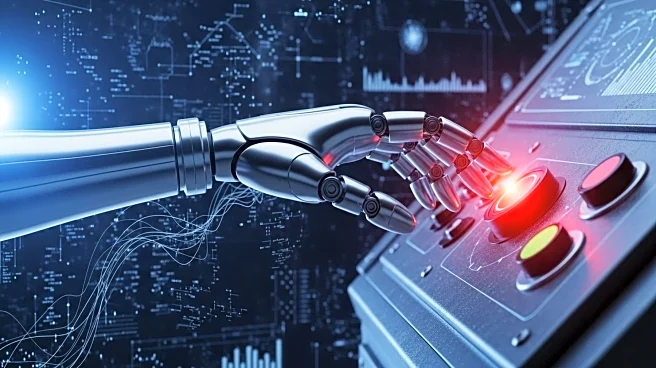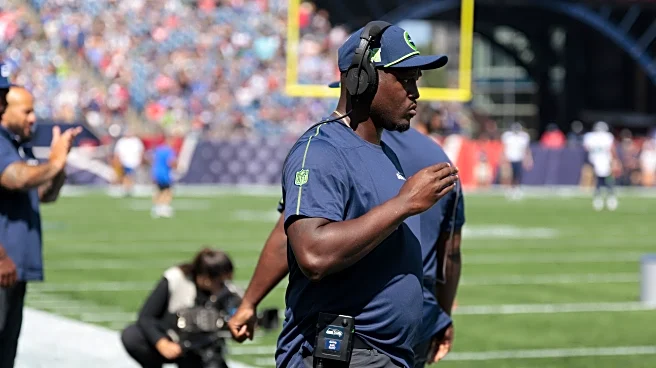What's Happening?
The book 'If Anyone Builds It, Everyone Dies' by Eliezer Yudkowsky and Nate Soares presents a dire warning about the potential existential risks posed by superintelligent AI. The authors argue that AI could lead to human extinction through scenarios such as energy-hungry AI systems or self-improving AI that surpasses human capabilities. The book aligns with concerns raised by prominent figures like Geoffrey Hinton and Yoshua Bengio, who advocate for prioritizing the mitigation of AI risks alongside other global threats. The authors emphasize the urgency of addressing these risks before superintelligent AI becomes a reality.
Why It's Important?
The book's warnings highlight the need for global awareness and action to prevent potential catastrophic outcomes from AI development. As investment in AI infrastructure grows, the possibility of achieving superintelligence raises ethical and safety concerns. The authors' call for halting advanced AI development reflects the tension between technological progress and existential risk. The discourse around AI's impact on humanity is crucial for shaping public policy and guiding responsible innovation. Stakeholders, including tech companies, governments, and researchers, must consider the implications of AI advancements and prioritize safety measures.
Beyond the Headlines
The book challenges readers to consider the broader implications of AI development, including the ethical dilemmas of creating autonomous systems. It raises questions about the balance between innovation and safety, urging a reevaluation of priorities in AI research. The authors' unconventional approach and strong convictions may provoke debate and inspire further exploration of AI's potential risks. The narrative serves as a reminder of the importance of interdisciplinary collaboration to address complex challenges posed by emerging technologies.










